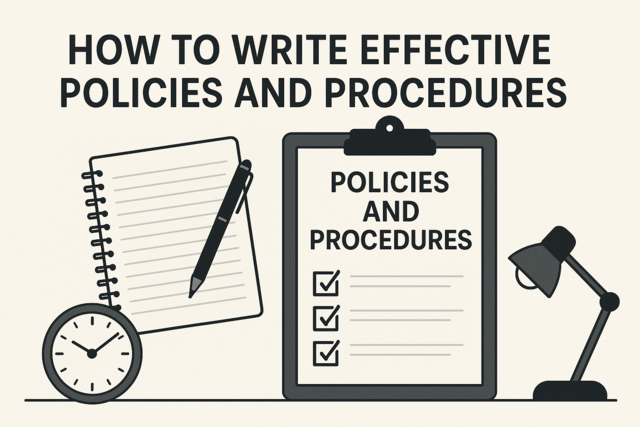Introduction
There are literally hundreds of thousands of organizations looking for funding and others looking for good projects to fund, whether those projects belong to individuals, foundations, organizations, or governments. Grant and contracting announcements are released every day.
Matchmakers are needed to bring together both sides; i.e., the seekers and granters.
That is where you could come in! Particularly as there are not nearly that many good grant writers or matchmakers that can bring them together.
The short answer is no one! The terms "grant writing" or "grant writer" are misnomers, as no one actually writes grants at all.
People write grant proposals when they are seeking money from people or organizations. Those same people, foundations, or organizations receiving the proposals in turn write the agreements and checks to cover the amount the grant is for. That is when the actual writing comes in.
The grant writer label is widely recognized to describe the actual process of proposal writing, as well as depict the way people visualize the job. So, rather than split hairs, let us agree to accept the label of grant writer as such.
Grant proposals are requests submitted to individuals, foundations, or the government for funding. They include a narrative, forms, and usually attachments to support the request. It is a responsibility of the grant writer to develop and compile all the necessary documentation for submission and to do so creatively.
Grants are gifts made by those individuals, foundations, or governments, and most often they are made to nonprofit organizations; i.e., those organizations designated 501(c)(3) by the Internal Revenue Service.
The Language You Need to Know
It is crucial that you can speak and understand the language of "Grant-ese." It is not as difficult as learning to speak Chinese, German, or French; but you need to appreciate how important it is that you are proficient in the language of grants if you are to be successful in this field.
Using either incorrect or confusing lingo, especially for high-level support requests, not only leads to frustration, confusion, and delays in getting a decision but usually, more often than not, to rejection. That is something you definitely do not want to encourage!
Rather than go into a long list of words and their meanings here, we will provide a glossary as an addendum, as well as a list of some great referral material. It is important to stress, however, the necessity of not only speaking the language but doing so in such a manner that you inspire confidence in both clients and grant makers.
The term "grant seekers" denotes not only those individuals or organizations seeking funds but also those organizations, corporations, and individuals looking for funds to give, sometimes to lift their profile in the community, sometimes for a tax benefit, or for a number of other reasons.
We have covered some of those organizations that would make up your market, but keep in mind that the primary market of a grant writer is the nonprofit sector. Just some of the diverse categories are as follows:
|
There are several crucial skills you absolutely need to be a successful grant writer. You not only need to do them efficiently but consistently and without fail.
Next, never miss a deadline. Keep in mind that sometimes, even if a grant proposal arrives as little as an hour or two late, it may miss being reviewed. Yes, it can be tough!
Third, and although it may seem obvious, read and follow the instructions.
You will soon realize that there are just two ways to approach the seeking of grant funding: (1) you search for matches between organization/foundation guidelines and your client organization's mission, and (2) you respond to a RFP (request for proposal).
It does not matter whether you are writing with regard to an actual RFP or to guidelines, the grant proposal instructions must be followed carefully and precisely.
TIP: You must use the language and approach set out by your addressees.
Be aware that changes to the intent of funding have been taking place. Whereas at one time funding was available mainly for capital projects, such as construction, renovation, etc., and original staffing costs and items necessary for special project implementation, grants rarely covered operational costs, such as utilities and ongoing staffing expenses.
Operating grants are now becoming increasingly common as organizations are wishing to ensure the continuance of successful programs, particularly those that have been deemed necessary to an organization and the community.
Many view the United States as the most philanthropic nation in the world, and that is probably correct. Americans have every reason to be proud of their long-standing tradition of caring for those less fortunate and of sharing their blessings with others.
These traditions date back to Native Americans and early religious leaders in particular, who both shared their bounty of harvests and knowledge with others through the centuries.
In 1913, the federal government established the income tax program through which it collected money for redistribution throughout the United States, wherever it was most needed and useful. Today the government plays a very active role in determining the types of projects that need and receive public support.
Introduction
Successful grant writers pull together all data, or evidence supporting their case, to paint the picture they wish the grant funders to see. By doing so, they set the stage for their proposed project clearly and precisely. They clearly detail the future state or desired outcome of the proposal they wish funding for.
The Kinds of Proposals that Will Be Successful
The grant proposals that stand the best chance of succeeding require a great deal of research time. Rejections will become a thing of the past if you, the grant writer, comb through every minute detail and find funding gems where others have seen no chance at all.
Grant makers of all kinds are interested in receiving well-written proposals that relate directly to their published funding priorities. Remember this, and it will help you become a successful grant writer.
You should always do your research homework before submitting a request to a foundation, corporation, or individual funder for money. Always take the time to get to know that foundation or corporation as well as you can beforehand; in other words, take the time to become acquainted.
With regard to obtaining knowledge, research material, and dedicated specific information, your best friend is the Internet.
All distribute free and helpful information that will assist you and lead to other beneficial links and information.
Before submitting any grant proposals, you should always take the time and trouble to establish a relationship of some kind with the officers of the funding corporation or foundation. If you have any doubt about the wisdom of this, look at it this way: Would you lend money to someone you know absolutely nothing about? Likewise, would you lend money to someone that showed no interest in you or your organization? "Not likely" would surely be the answer to both questions!
Build knowledge of your cause or charity with any and all prospective granters; build rapport by e-mailing or calling funders. People and organizations who feel a connection with you, even a tenuous one, are more inclined to help you and your interests.
Whatever you do, always follow the prospective funder's directions to a T. Do not vary from them, as to length of proposal, whether it is to be typed in a certain way, or on a certain size paper; whatever the direction request is, follow it. This may seem petty to you, but your thoughts do not matter here; just follow the directions.
Follow the outline as closely as you possibly can, even if the order therein is not at all the way you would do it. Do it the funder's way, not yours!
Take note of any review criteria, no matter how minute it might seem.
It is not always easy to apply and follow these guidelines. Beginners often find it almost impossible, thinking they know better. They learn the hard way, through rejection, that their way does not matter. It is the funder's procedure that counts.
A major concern of most funders is the ability on the part of the requesting organization to maintain the program after the grant has finished.
In scheduling, you need to start from the end goal: Look at the funders' deadlines and work backward. Work backward from the date the proposal must leave your office, not the date it is required at the grantor's office.
Base your writing schedule on the funders' deadlines. Please remember that even with no specified deadline date, there are always internal deadlines to consider for such things as receipt of applications in sufficient time that they may be considered at any relevant meetings. If you need to call the organization or foundation in question to discover those deadlines, do so.
Try to submit your proposal at least two to three weeks before the deadline, or longer if possible. Although it is a good idea to include copies of any publications relating to your charity or organization that refer to the particular program you seek funding for, or to extend an invitation to any event to be held in conjunction with the funding program, it is not a good idea to send anything at all that relates to any other program.
All too often, some grant writers create schedules that deliver proposal completion only at the last moment. This is a very bad and dangerous practice. By doing this, you make it impossible for any program officer to get back to you with any feedback, possibly inviting you to revise your proposal. This downgrades your chances of success.
One last piece of advice on scheduling: Deadlines are a major means by which funders separate serious proposals by professionals from those presented by rank amateurs. Professionals present early. Amateurs submit at the very last moment. Which would you rather be viewed as?
- Take a long view; in other words, look ahead to the future.
- Find one or more grant writers who will share copies of their successful efforts.
- Always investigate appropriate sources of funding thoroughly.
- Stay fully informed about the grants scene via the Internet, colleagues, grant administrator contacts, etc.
- Do what a lot of people do not: Ask for feedback.
- Keep a grants notebook; i.e., what has worked best, what to avoid based on past results.
- Do not be afraid to ask for help.
- Start early. As a general rule, things always take twice as long as you think they will.
Focus Your History
Always present your client's organizational history, including such details as when the organization was founded, its financial history, and any relevant documentation attesting to a clear record of financial responsibility and successful implementation of past projects. If none of these is available, include missions or visions accomplished.
Also helpful is a history of collaboration with others in the community in regards to project implementation and a history of making plans that sustain projects after the grant period has passed.

























